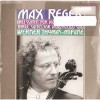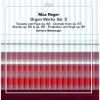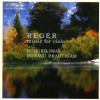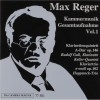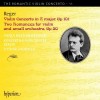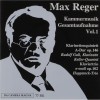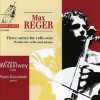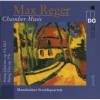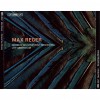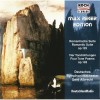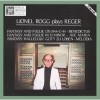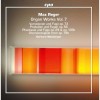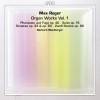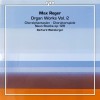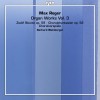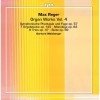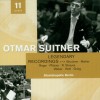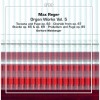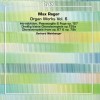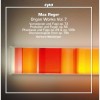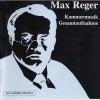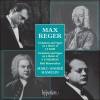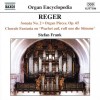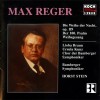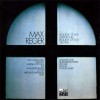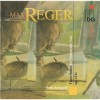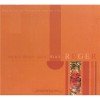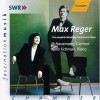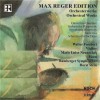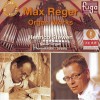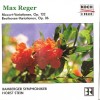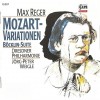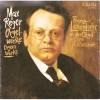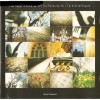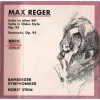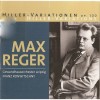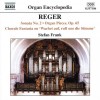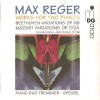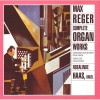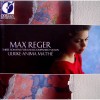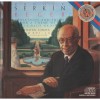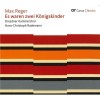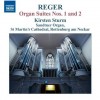传记
Johann Baptist Joseph Maximilian Reger (19 March 1873 – 11 May 1916) was a German composer, conductor, pianist, organist, and academic teacher.
Born in Brand, Bavaria, Reger studied music in Munich and Wiesbaden with Hugo Riemann. From September 1901 he settled in Munich, where he obtained concert offers and where his rapid rise to fame began. During his first Munich season, Reger appeared in ten concerts as an organist, chamber pianist and accompanist. He continued to compose without interruption. From 1907 he worked in Leipzig, where he was music director of the university until 1908 and professor of composition at the conservatory until his death. In 1911 he moved to Meiningen where he got the position of Hofkapellmeister at the court of Georg II, Duke of Saxe-Meiningen. In 1915 he moved to Jena, commuting once a week to teach in Leipzig. He died in May 1916 on one of these trips of a heart attack at age 43.
He had also been active internationally as a conductor and pianist. Among his students were Joseph Haas, Sándor Jemnitz, Jaroslav Kvapil, Ruben Liljefors, George Szell and Cristòfor Taltabull.
Reger was the cousin of Hans von Koessler.
Reger produced an enormous output over little more than 25 years, nearly always in abstract forms. Few of his compositions are well known in the 21st century. Many of his works are fugues or in variation form, including what is probably his best known orchestral work, the Variations and Fugue on a Theme by Mozart based on the opening theme of Mozart's Piano Sonata in A major, K. 331. He also wrote a large amount of music for organ, including the Fantasy and Fugue on BACH. He was particularly attracted to the fugal form his entire life. Once he remarked: "Other people write fugues - I live inside them". He created music in almost every genre but opera and the symphony.
A firm supporter of absolute music, he saw himself as being part of the tradition of Beethoven and Brahms. His work often combines the classical structures of these composers with the extended harmonies of Liszt and Wagner, to which he added the complex counterpoint of Bach. His organ music, though also influenced by Liszt, was provoked by that tradition.
Of his orchestral pieces, only his richly elaborate Variations and Fugue on a Theme by Hiller and Mozart Variations are still performed now and then. Among his chamber compositions, the lighter-textured trios have retained a small place in the repertory, and the Clarinet Quintet, his last work, is widely admired. Some of the works for solo string instruments turn up often on recordings, though less regularly in recitals. His solo piano and two-piano music places him as a successor to Brahms in the central German tradition. He pursued intensively, and to its limits, Brahms's continuous development and free modulation, often also invoking, like Brahms, the aid of Bach-influenced polyphony.
Reger was a prolific writer of vocal works, Lieder, works for mixed chorus, men's chorus and female chorus, and extended choral works with orchestra such as Psalm 100 and the Requiem. He composed music to texts by poets such as Otto Julius Bierbaum, Adelbert von Chamisso, Joseph von Eichendorff, Emanuel Geibel, Friedrich Hebbel, Nikolaus Lenau, Friedrich Rückert and Ludwig Uhland.
His works could be considered retrospective as they followed classical and baroque compositional techniques such as fugue and continuo. The influence of the latter can be heard in his chamber works which are deeply reflective and unconventional.
Reger's music did not often receive favorable reviews. After one he particularly disliked, he wrote the following: "I am sitting in the smallest room of my house. Your review is in front of me. Soon, it will be behind me."







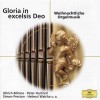
![Russian legends - David Oistrakh [20 CD]](http://static.classicalm.com/repository/collection-cover/small/267-img1318418713553266.jpg)
![Russian legends - Gidon Kremer [10 CD]](http://static.classicalm.com/repository/collection-cover/small/273-img1318873589669975.jpg)
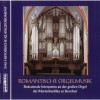
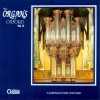
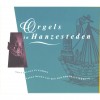
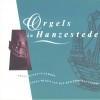
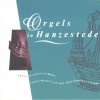
![Great European Organs. 54-Christophet Nickol [Dunblane Cathedral]](http://static.classicalm.com/repository/collection-cover/small/947-img1342352058848256.jpg)
![Het Historische Orgel in Nederland [CD 18 of 20]](http://static.classicalm.com/repository/collection-cover/small/1015-img1343578686577117.jpg)
![Great European Organs. 05-James Lancelot [Durham Cathedral]](http://static.classicalm.com/repository/collection-cover/small/849-img1340530226510115.jpg)
![Great European Organs. 60-Adrian Partington [Reading Town Hall]](http://static.classicalm.com/repository/collection-cover/small/959-img1342432096102267.jpg)
![Great European Organs. 20-Graham Barber [St Johannis Osnabrück]](http://static.classicalm.com/repository/collection-cover/small/879-img1340984524816814.jpg)
![Great European Organs. 62-Johannes Unger [St Thomaskirche Leipzig]](http://static.classicalm.com/repository/collection-cover/small/963-img1342699534843225.jpg)
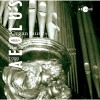
![Great European Organs. 26-Keith John [Gloucester Cathedral]](http://static.classicalm.com/repository/collection-cover/small/891-img1341406805684265.jpg)
![Great European Organs. 63-Nicolas Kynaston [Megaron, Athens Concert Hall]](http://static.classicalm.com/repository/collection-cover/small/965-img1342703754192433.jpg)

![Great European Organs. 30-Graham Barber [Altenberg Cathedral]](http://static.classicalm.com/repository/collection-cover/small/899-img1341418069298272.jpg)
![Great European Organs. 69-Stefan Engels [St Matthias Berlin-Schöneberg]](http://static.classicalm.com/repository/collection-cover/small/977-img1342728158736074.jpg)
![Great European Organs. 01-Stephen Cleobury [King's College Cambridge]](http://static.classicalm.com/repository/collection-cover/small/841-img1340482259132910.jpg)
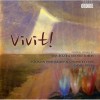
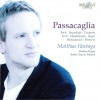
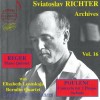
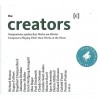
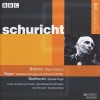
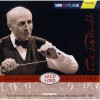
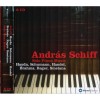
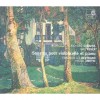
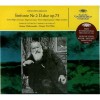
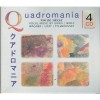
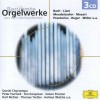
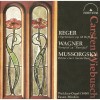
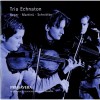

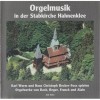
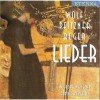
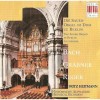
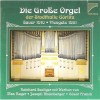
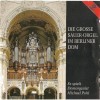
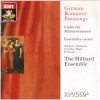
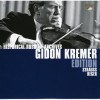
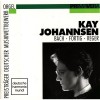
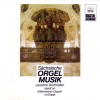
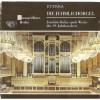
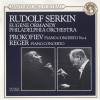
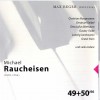

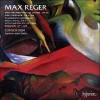

![Reger - Chamber Music - Mannheimer Quartet [5 CD]](http://static.classicalm.com/repository/composition-cover/small/16387-img1380731381221797.jpg)
